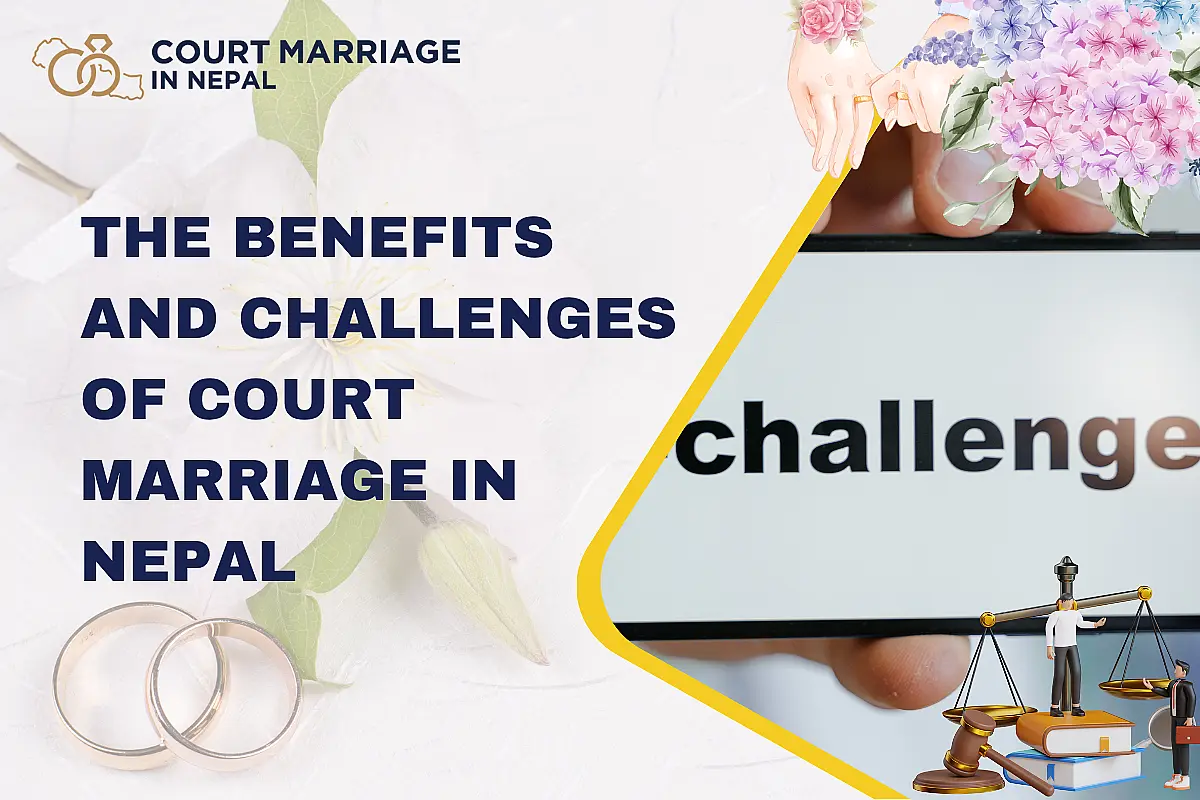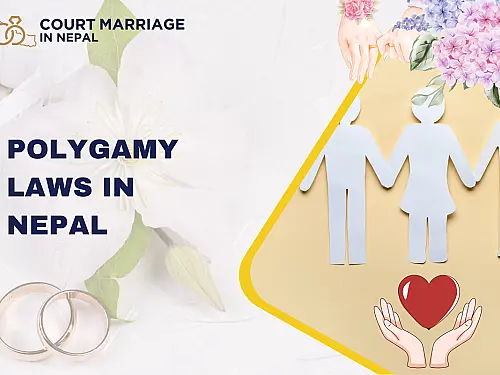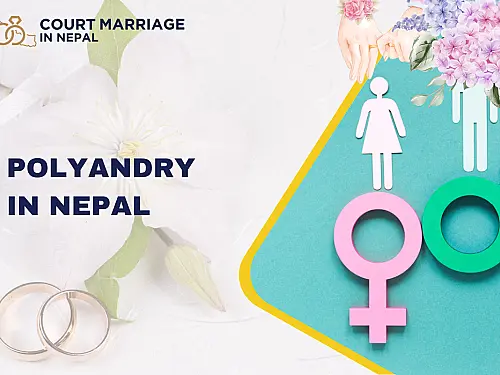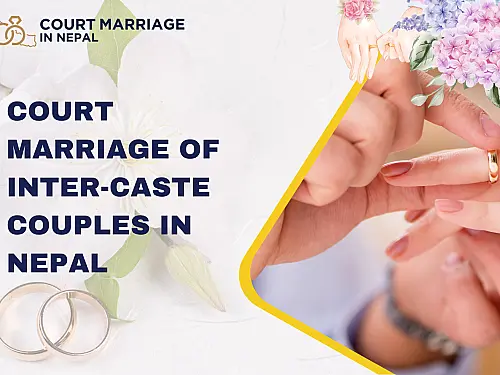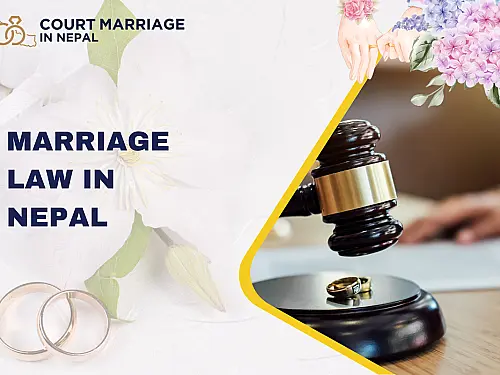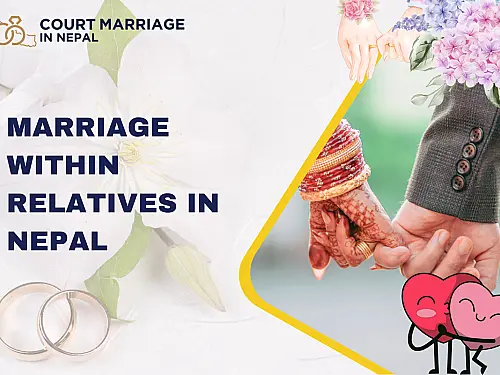Marriage is a big decision in one's life, and it involves many factors such as love, compatibility, family, culture, religion, and law. In Nepal, there are different ways of getting married, such as traditional ceremonies, religious rituals, or court marriage. Court marriage is a legal form of marriage where the couple registers their marriage at the District Court without any social or religious ceremony. It is based on mutual consent and recognition by the law.
I chose to have a court marriage with my partner because we wanted to have a simple and hassle-free wedding. We also wanted to avoid any potential conflicts or complications with our families and communities, as we belong to different castes and religions. We felt that court marriage was the best option for us, as it gave us the freedom and flexibility to live our lives according to our own values and preferences.
However, court marriage also comes with its own benefits and challenges, which I would like to share with you based on my personal experience.
Benefits of Court Marriage in Nepal
Some of the benefits of court marriage in Nepal are:
- It is quick, easy and inexpensive. The process of court marriage in Nepal is straightforward and requires applicants to meet certain legal requirements and submit the necessary documents. The court verifies all the documents, registers the application, and issues a certificate of marriage registration. The whole process can take anywhere from a few days to a few weeks, depending on various factors such as the availability of the court authority and the judge, the verification of the documents and the legal conditions, the number of applicants and witnesses, and the workload of the court administration. The cost of court marriage in Nepal also varies depending on various factors such as the fees charged by the court authority and the judge, the fees charged by the notary public and the translator, the fees charged by the embassy or consulate, and the transportation and accommodation expenses. Generally, it can cost anywhere from a few thousand to a few lakh Nepalese rupees to conduct a court marriage in Nepal.
- It does not require any parental consent or approval from the community. Court marriage gives the couple the autonomy and independence to choose their partner without any interference or pressure from their parents or society. They do not have to worry about pleasing anyone or conforming to any norms or expectations. They can also avoid any potential conflicts or disputes that may arise due to differences in caste, religion, culture, or status.
- It protects the rights of both parties in case of divorce, inheritance, property division, etc. Court marriage ensures that both parties have equal rights and responsibilities in their marital relationship. It also provides legal protection and security in case of any unforeseen circumstances such as divorce, separation, death, or violence. The couple can claim their rights and entitlements according to the law without any discrimination or bias.
- It can be done between people of different nationalities, religions, castes or cultures. Court marriage allows people of different backgrounds and identities to get married legally without any restrictions or barriers. It promotes diversity and harmony among people and respects their choices and preferences. It also facilitates cross-cultural exchange and understanding among people.
Challenges of Court Marriage in Nepal
Some of the challenges of court marriage in Nepal are:
- It may face social stigma or ostracism from family or community. Court marriage may not be accepted or respected by some people who adhere to traditional or conservative values and beliefs. They may consider it as a violation of their customs or norms or as a sign of disrespect or rebellion. They may also try to discourage or dissuade the couple from getting married through court or even threaten or harm them physically or emotionally. The couple may face social isolation or exclusion from their family or community or lose their support or trust.
- It may require additional documents or procedures to recognize a foreign marriage certificate. Court marriage is valid in other countries as long as it complies with the laws of both countries. However, some countries may require additional documents or procedures to recognize a foreign marriage certificate. Therefore, it is advisable to consult with the respective authorities before traveling or settling abroad with your spouse.
- It may not fulfill the emotional or spiritual needs of some people. Court marriage may not satisfy the emotional or spiritual needs of some people who value the social or religious aspects of marriage. They may feel that court marriage is too formal or impersonal and lacks the warmth or intimacy of a traditional or religious ceremony. They may also miss the opportunity to celebrate their union with their family or friends or to seek blessings from their elders or deities.
My Personal Experience of Court Marriage in Nepal
I had a court marriage with my partner in Nepal last year, and it was one of the best decisions of my life. We met online and fell in love with each other despite our differences in caste, religion, and culture. We decided to get married legally without any ceremony because we wanted to avoid any potential problems or conflicts with our families or communities. We also wanted to save money and time and focus on our careers and future plans.
We contacted a lawyer who helped us with the court marriage process and guided us through all the steps and documents required. We filled out the application form and submitted it along with our citizenship certificates, photos, and recommendation letters from our local wards. We also got a no-objection letter from our respective embassies as we are both foreigners living in Nepal. The lawyer also arranged for two witnesses who were his friends.
The court verified our documents and scheduled an appointment for us. On the appointed date, we went to the court with our witnesses and met the judge. He asked us some questions to confirm our identity and consent and then approved our application. The court administration issued us a certificate of marriage registration and congratulated us.
We were very happy and relieved to get married legally without any hassle or trouble. We felt that court marriage was the perfect choice for us as it gave us the freedom and flexibility to live our lives according to our own values and preferences. We also felt that court marriage was more meaningful and authentic than a social or religious ceremony as it was based on our mutual love and respect.
However, we also faced some challenges and difficulties due to our court marriage. Some of our family members and friends did not accept or respect our decision and tried to persuade or pressure us to have a traditional or religious ceremony. They also questioned our commitment and compatibility and doubted our future prospects. Some of them even cut off contact with us or treated us differently.
We also had some problems with getting our foreign marriage certificate recognized in other countries. We had to submit additional documents or procedures to prove our marital status and rights in some situations such as traveling, working, or settling abroad. We also had to deal with some legal issues such as taxation, immigration, or inheritance.
Moreover, we sometimes felt that we missed out on some emotional or spiritual aspects of marriage that a social or religious ceremony could have provided. We wished that we could have celebrated our union with our loved ones or sought blessings from our elders or deities. We also felt that we lacked some sense of belonging or identity as a married couple in our society or culture.
Nevertheless, we are very happy and satisfied with our court marriage and do not regret our decision at all. We believe that court marriage is a valid and respectable form of marriage that suits our needs and preferences. We also believe that court marriage is a progressive and inclusive form of marriage that promotes diversity and harmony among people.
We hope that more people will consider court marriage as an option for getting married in Nepal and that they will respect and support those who choose it. We also hope that the law and society will recognize and protect the rights and interests of those who opt for court marriage in Nepal.
At Court Marriage In Nepal, a registered law firm operating as Court Marriage In Nepal Pvt. Ltd., we specialize exclusively in Court Marriage Nepal. As the first law firm in Nepal dedicated to court marriage services, we assist both Nepali citizens and foreign nationals with the court marriage registration process in Nepal, including complete legal support for court marriage registration for foreign citizens in Nepal. As a trusted marriage firm in Nepal and a licensed law firm in Nepal, we ensure a smooth, lawful, and stress-free experience. Contact us today for confidential assistance with court marriage registration in Nepal.

